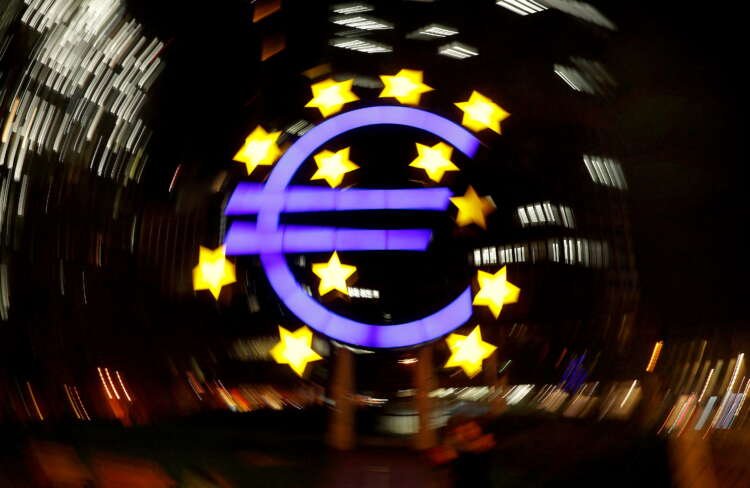German bonds rally as investors seek safe haven after Ukraine invasion


By Yoruk Bahceli
(Reuters) -Euro zone bonds rallied on Thursday as investors rushed into safe assets after Russia’s all-out invasion of Ukraine sent European stock markets into a downward spiral.
Germany’s 10-year yield, the benchmark for the euro area, fell as much as 10 basis points (bps) to its lowest level since the European Central Bank (ECB) on Feb. 3 opened the door to rate hikes this year. Yields move inversely to prices.
The yield was set for the biggest daily fall since the height of the coronavirus pandemic in March 2020, but gradually trimmed its losses towards the end of the session.
At 1554 GMT, Germany’s 10-year yield was down about 7 bps at 0.151%.
Inflation-linked bonds saw the biggest rally, with Germany’s 10-year real yield falling 17 bps.
Yields on inflation-linked bonds, which investors use to hedge against price rises, have fallen faster than conventional bond yields this week.
Energy prices have spiked on the back of the crisis in Ukraine, stoking worries about inflation, already at a record high in the euro zone.
A market gauge of shorter-term inflation expectations rose sharply on Thursday, while longer-term expectations also touched a five-week high.
“The conflict … takes us a sizeable step towards stagflation where we see higher prices but slower growth. It’s a significant continuation of a series of remarkably numerous unrelated negative supply (chain) shocks,” said Richard McGuire, head of rates strategy at Rabobank.
Yields on two-year bonds – sensitive to near-term inflation and interest rate expectations – fell less than longer-dated bonds. That flattened the two-year/10-year yield curve to the narrowest since Feb. 10 in a sign of concern on the growth outlook.
The focus was on what the Ukraine conflict means for the ECB. Economists prior to the invasion expected an end to ECB bond purchases by September and interest rates to rise this year in response to record-high inflation.
Money markets continued to trim bets on ECB rate hikes, but are still pricing in around 34 bps of hikes by the end of the year, compared with around 40 bps before the invasion.
The invasion “does increase the conundrum which (central banks) have already been grappling with and capitulated to, which is higher cost-push inflation,” McGuire at Rabobank said.
ECB policymakers were gathering for an informal meeting on Thursday, announced last week.
In the most cautious statement from a policymaker yet, Greek central bank governor Yannis Stournaras said the ECB should continue bond buying until at least year-end and keep it open-ended to cushion any fallout from Ukraine as the economic outlook is “much more uncertain.”
Analysts noted the conflict could prompt the ECB to slow the withdrawal of its stimulus.
One sign was a smaller-than-expected reaction in southern European bonds, leading beneficiaries of ECB stimulus. In Italy, the closely-watched risk premium over German bonds at one stage rose to 177 bps, before slipping back to 162 bps.
In credit markets, the cost of insuring exposure to a basket of European high yield corporate bonds touched the highest since October 2020.
(Reporting by Yoruk Bahceli; Additional reporting by Saikat ChatterjeeEditing by Susan Fenton and Mark Potter)
Explore more articles in the Investing category











